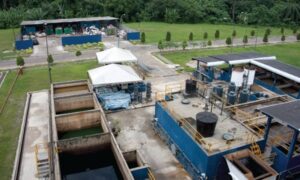
Biomass Pellets Offer a Carbon-Neutral Alternative to Coal
An innovative European Union–funded Arbaflame project is aiming to produce 70,000 tonnes of biomass-based combustibles per year to enable clean power generation.
Most companies do not think about trash and recycling. Furthermore, they usually get into a long term contract with Waste Management Services or local haulers with fixed prices for waste management. A recent study reveals that solid waste management’s industry share is projected to witness a 2.3% growth rate from 2020 to 2026. To become sustainable and green, many commercial businesses are implementing waste reduction and management tactics throughout all levels of the company and across properties. Waste management can save money, conserve resources, and create a more sustainable work environment. There are a variety of ways to implement waste reduction tactics in a commercial setting. If cutting expenses is your priority, saving on commercial waste management costs is one of the easiest ways to achieve it. Follow these tips to reduce your waste costs optimally:
There are various ways to reduce waste on commercial properties. You may have to implement new strategies on the property for waste reduction and management. It might take some time to reflect results, but it will save you money. Shop local, negotiate, collaborate, downsize, reduce, and recycle is the best way to cost-effective commercial waste management.


An innovative European Union–funded Arbaflame project is aiming to produce 70,000 tonnes of biomass-based combustibles per year to enable clean power generation.

At Malaysia’s first waste-to-energy plant, municipal solid waste (MSW) is converted into refuse-derived fuel for use in an integrated steam power plant. This facility was designed to achieve the twin objectives of environmentally friendly MSW disposal and generating renewable power.

The ongoing consumption and production due to industrialization has become a threat to our planet. Industries are encouraging climate change through over usage of the land, water, and non-renewable resources.

